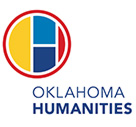

- This event has passed.
“Let’s Talk About It” Book Discussion Series
November 13, 2021, 6 p.m.
Event Navigation
Pawnee Bill Ranch and Museum in Pawnee has partnered with Oklahoma Humanities (OH) to host OH’s book discussion series called “Let’s Talk About It.” The book club meetings will take place as monthly in-person gatherings at the museum on Blue Hawk Peak, and will feature a different book title each month from July to November.
All five of the books in the program have the overarching theme of “Many Trails, Many Tribes: American Indians in Fiction.” The intention of the discussion group is to focus on the accuracies or inaccuracies found in the portrayal of American Indians depicted in works of fiction. Each month, a scholar will give a 45-minute synopsis on the chosen book of the month. After the synopsis, the scholar will lead an open forum discussion with the participants.
The featured book for November is: Barbara Kingsolver, Pigs in Heaven (Harper Collins, 1993), with scholar Dr. John Coward
The museum will provide all the books, refreshments, and the venue. All participants need to bring is the desire to add to the discussion. This program is free to the public. For more information, call 918-762-2513 or come by the museum to sign up for the program and take home the latest book in the “Let’s Talk About It” series.
Oklahoma Humanities (OH) is an independent, nonprofit organization whose mission is to strengthen communities by helping Oklahomans learn about the human experience, understanding new perspectives, and participate knowledgeably in civic life through humanities disciplines such as history, literature, film studies, art criticism, and philosophy. As the state partner for the National Endowment for the Humanities, OH provides a free educational magazine, Smithsonian Institution exhibits, reading and discussion groups, and other cultural opportunities for Oklahomans of all ages. OH engages people in their own communities, stimulating discussion and helping them explore the wider world of human experience.
Funding for this program is provided in part by a grant from Oklahoma Humanities (OH) and the National Endowment for the Humanities (NEH). Any views, findings, conclusions, or recommendations expressed in this program do not necessarily represent those of OH or NEH.








